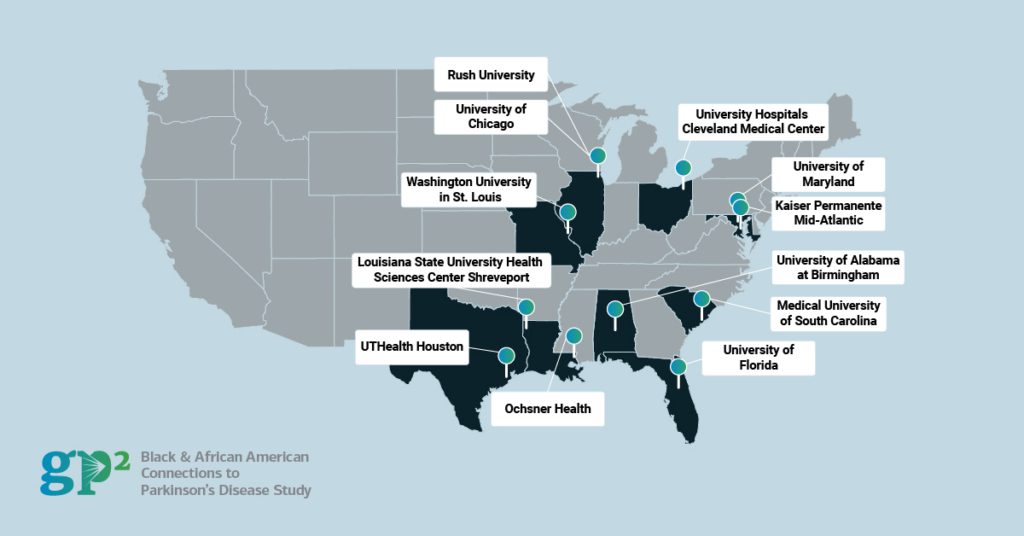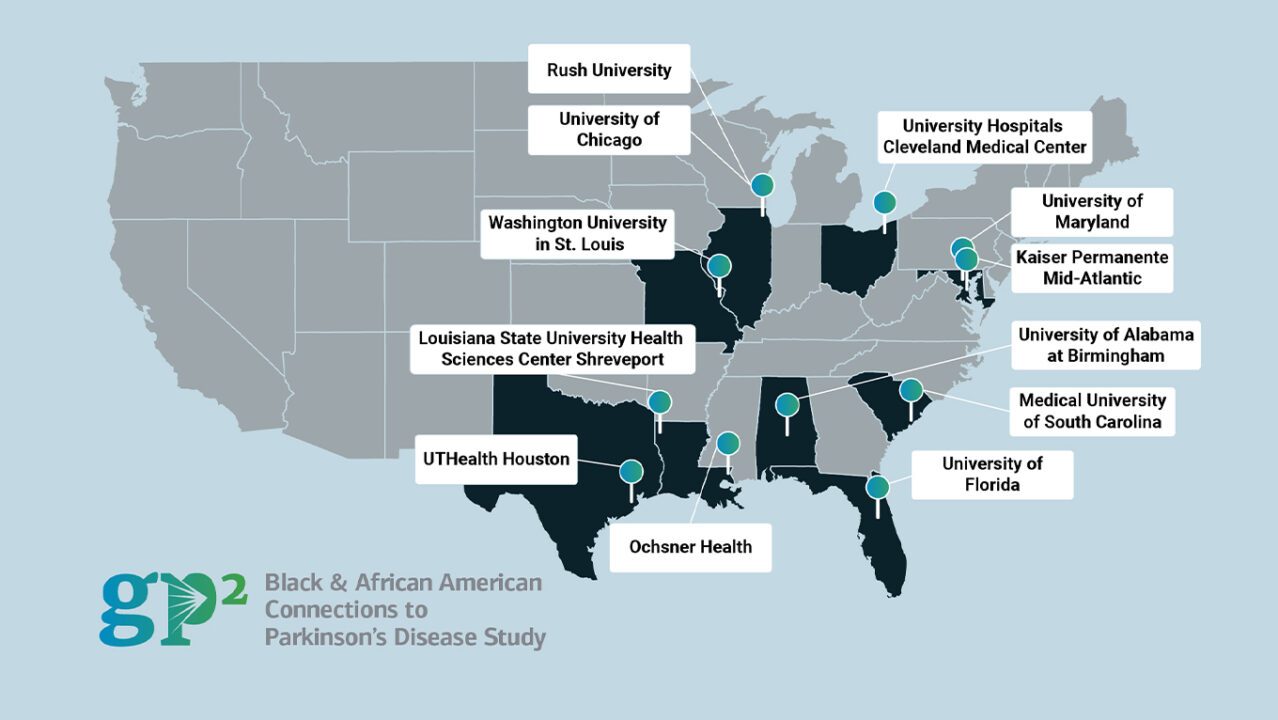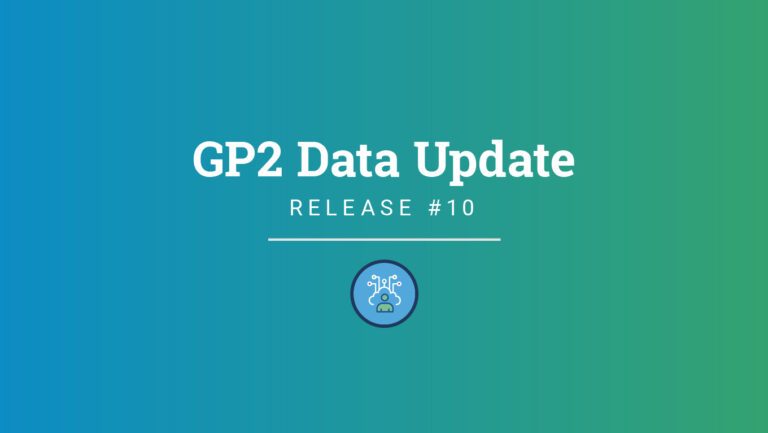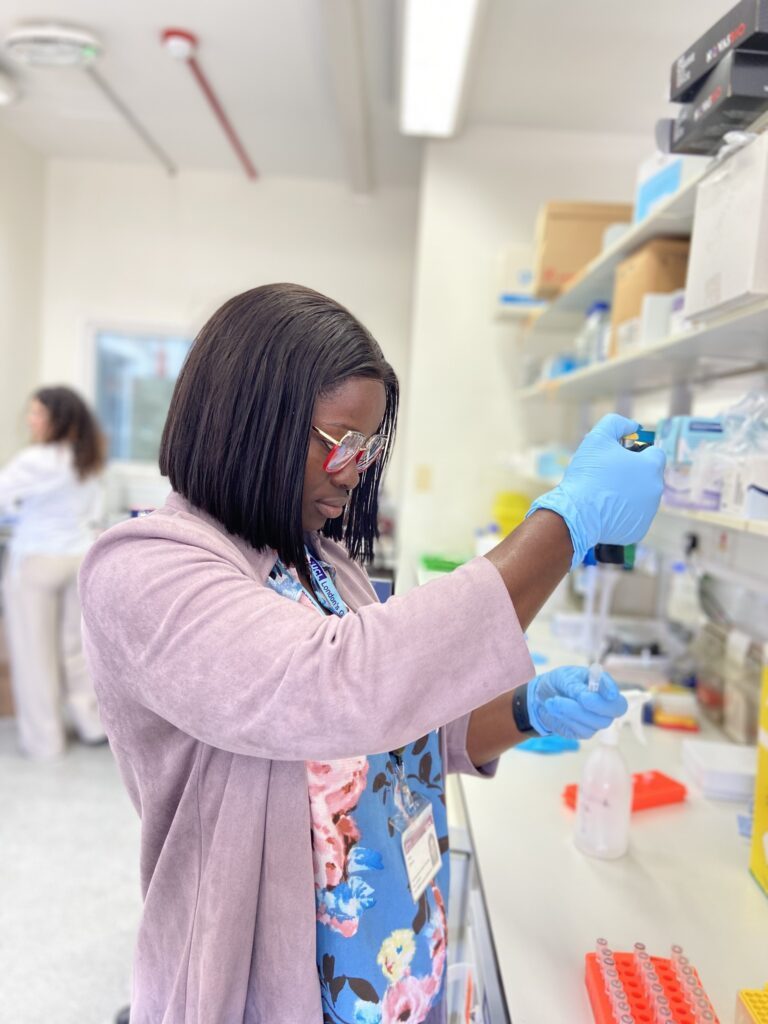The month of February is recognized as Black History Month in the United States, celebrating the contributions and achievements of the Black community. It was started as a week in 1926 by noted historian Carter G. Woodson as a way to encourage researching and studying the important role Black Americans played in history. He chose February because it coincided with the birthdates of two men important to Black US history – noted abolitionist Frederick Douglas and US President Abraham Lincoln, recognized as the president who ended government-sanctioned slavery. Black History Month has been officially recognized by the U.S. government since 1976, followed by other countries around the world devoting a month to celebrate Black history, including Canada, the United Kingdom, Germany, and France.
Alongside a painful history in the United States, research has long neglected to serve the Black and African American community. Many studies never enrolled any diverse participants while past studies unethically took advantage of the community or specific community members, as in the cases of the Tuskegee Syphilis Study from 1932 to 1972 and the replication and use of Henrietta Lacks’s cells without consent in 1951, to name a few. Changes across research are making intentional efforts to invite and engage diverse communities in research. Acknowledging the pain points and historical lack of research with the Black and African American community, GP2 initiated a dedicated effort in 2021 to ensure the representation of the diverse Black and African American population in the United States, through the Black and African American Connections to Parkinson’s disease (BLAAC PD) study. During Black History Month, we are reflecting on what we’ve learned and looking ahead at what is to come for BLAAC PD.
2023 Learnings
The past year was full of learnings for the BLAAC PD team as we continued recruitment at the four original pilot sites and added two new sites in Gainesville, Florida and Shreveport, Louisiana in early 2023. Engaging with the Black and African American community, like other underrepresented communities in research, requires genuine intentions to better understand the community, its culture, its unique characteristics, and how all of this plays into the response to and interaction with research recruitment strategies. In 2023, the study enrolled 228 individuals across the 6 sites, for an overall total of 461 participants recruited since 2021. This has come with many lessons learned throughout the year.
One of the most significant successes this year was at Louisiana State University (LSU) Health Sciences Center in Shreveport, Louisiana. Using the BLAAC PD funds dedicated to community engagement, their team began attending health fairs and other community events. Their consistent presence at these events began to garner trust within the community, and their engaging research coordinators were able to not only share more information about Parkinson’s disease but also motivate many healthy control volunteers to enroll in BLAAC PD. Within 10 months, LSU has successfully enrolled 124 participants, more than half of the total recruitment for 2023.
This year was also particularly challenging. Many of our sites saw a higher turnover rate of staff than in past years. Prioritization can also be challenging for research coordinators when their time is spread across multiple studies. Through our multiple sites, we have observed the difference it makes to have a dedicated lead coordinator on the study rather than coordinators spread among multiple studies. Dedicated leadership on the study supports consistency in enrollment. We have also learned how important it is to prepare ahead of a staff member’s departure and take key steps for mitigating a loss of momentum, such as identifying who will take on additional responsibility and who might need to undergo training and onboarding for the study.
Scientific Expansion
Last year was a big year of discoveries in the PD field, and as BLAAC PD continues to expand, we also aim to grow alongside these recent scientific discoveries. In 2023, an international coalition of scientists led by MJFF and its landmark clinical study, the Parkinson’s Progression Markers Initiative (PPMI), discovered a new tool that can detect the underlying pathology of the disease: abnormal alpha-synuclein in brain and body cells. The tool, the α-synuclein seed amplification assay, enables researchers to see this alpha-synuclein biological change happening in a living person for the first time and represents a huge step forward in finding new therapies and a cure. Among other findings, this international coalition of scientists reported a correlation between smell loss and a greater likelihood of positivity on the alpha-synuclein seed amplification assay. BLAAC PD will contribute to our understanding of the underlying pathology of Parkinson’s disease across various ancestries by including smell testing in the protocol.
Another big discovery published in 2023 was the GBA1 risk variant discovery, which was enabled through analysis of a combination of data from the Nigerian PD Research Network, IPDGC Africa, and BLAAC PD. With GBA1’s connection to cognition, BLAAC PD is intentionally seeking out proper measures for assessing cognition among future participants. The study will be convening a meeting with key leaders and stakeholders within the next few months to determine the next steps to assess cognition, considering the ability to assess across studies, across ancestries, and other significant considerations. We hope that this scientific expansion will improve our understanding of the GBA1 risk variant and improve the development of future PD therapies that will be effective for the Black and African American population.
Site Expansion
Since our first site was activated in June 2021, the study has grown from a pilot of 4 sites to a total of 6 sites in 2023, enrolling a total of 461 participants as of January 2024. However, with a goal of recruiting 2,000 participants by 2026, there is still much further to go. In 2023, the BLAAC PD team set a goal to expand dramatically to meet recruitment goals – double in size, from 6 to 12 active sites.
After dedicating months to the effort, 6 sites were officially selected: Medical University of South Carolina, Ochsner Health, University Hospitals Cleveland Medical Center, University of Maryland, UTHealth Houston, and Washington University in St. Louis.

With this expansion, we have added BLAAC PD in 4 additional states: Texas, Missouri, Ohio, and South Carolina. With BLAAC PD’s expansion across the Midwest and Southern states of America, we hope to see recruitment drastically increase along with increased representation of the diversity of the Black and African American population living in America. Due to immigration patterns and the Black Diaspora, communities of Black and African Americans differ by location. For example, the new BLAAC PD site in Houston, Texas has recognized a significant need for Spanish language materials as many in the Black and African American community are Afro-Latinos and may not speak English fluently. Similarly, Afro-Caribbean communities in New Orleans, Louisiana may respond differently to the materials we have developed. Before this year, BLAAC PD has only developed materials in English and most sites have utilized the same materials, but with these identified needs and opportunities, we hope to become a more robust study and more representative of the diverse Black and African American population within the United States.
Looking Forward
As we plan for what’s to come in 2024 and beyond, we know there is quite a bit to do. However, we are invigorated by the growth we have seen, the scientific findings we have the opportunity to respond to, and the motivation of our new sites who cannot wait to get started. Last year was full of learnings and discoveries, and we have no doubt that this year will be the same.
J Solle, Alyssa O’Grady, Dema Hakim, and Serena Fong also helped with the creation of this blog, thank you all for your time and contributions.





